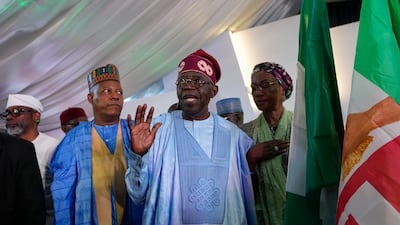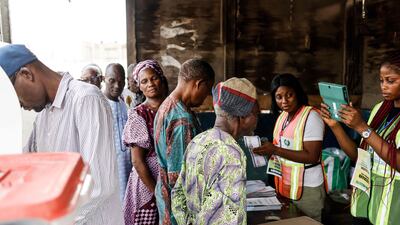Ruling party candidate Bola Tinubu led the race for Nigeria's presidency on Tuesday, according to partial official tallies issued after a tight election marred by frustration over long delays, technical hitches and opposition charges that results have been manipulated.
With President Muhammadu Buhari stepping down, many Nigerians hoped Saturday's vote would open the door to a leader able to tackle insecurity, ease economic malaise and root out poverty in Africa's most populous country.
Mr Tinubu, 70, a former Lagos governor from the ruling All Progressives Congress (APC) party faced another veteran from main opposition Peoples Democratic Party (PDP), Atiku Abubakar, 76, making his sixth attempt at the presidency.
But a surprise third candidate, Labour Party's Peter Obi, appealed to younger voters with a message of change.
He has tested the dominance of the APC and PDP for the first time since military rule ended in 1999.
Counting continued early on Tuesday, with 14 out of 36 states officially tallied.
The Independent National Electoral Commission said Mr Tinubu had won six states, Mr Abubakar five and Mr Obi three.
Mr Tinubu led with more than four million votes, while Mr Abubakar had three million and Mr Obi 1.6 million, according to national INEC figures.
The winning candidate has to garner the most votes nationally and score at least 25 per cent in two-thirds of the states - a measure reflecting a country split between a mostly Muslim north and widely Christian south, and with three main ethnic groups.
Saturday's election was mostly peaceful, but many polling stations opened late, angering voters, and delays or technical failures slowed uploading of results to an official INEC website meant to promote transparency.























